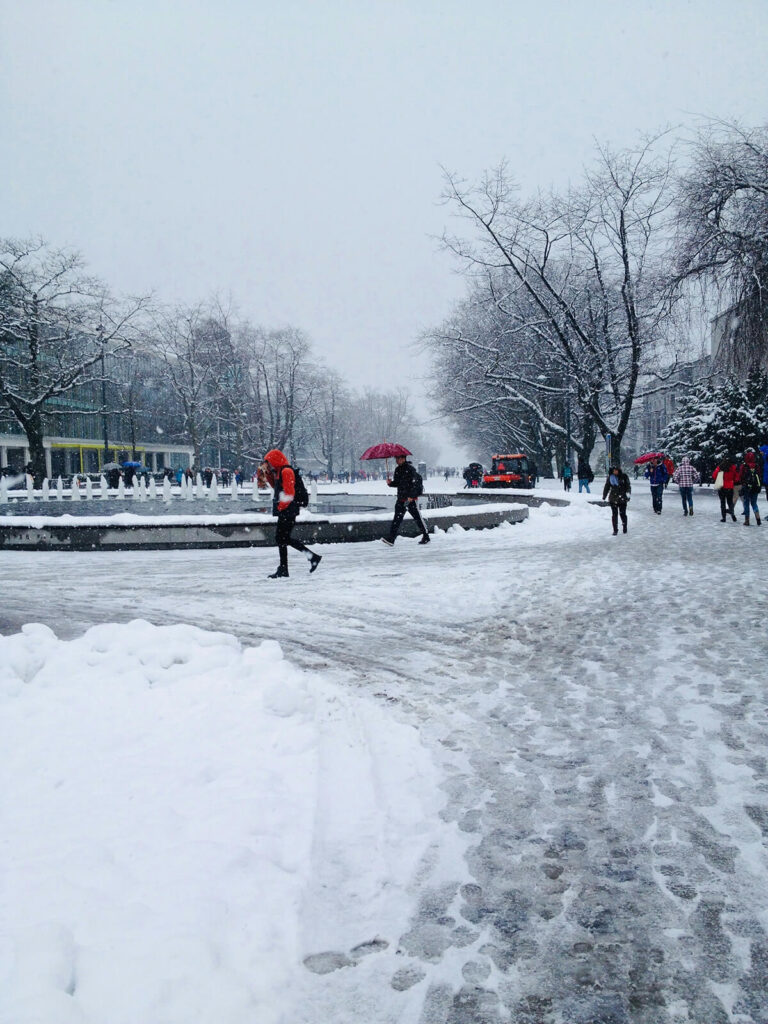Canada Study Permit Win Unfair Rejection Reversed
July 26, 2025
Iyiola v. Canada (Citizenship and Immigration), 2020 FC 324
Imagine having your dreams of studying in Canada shattered by an unclear rejection. That’s precisely the challenge Mr. Iyiola faced when his study permit application was denied. However, in a significant turn of events, his judicial review application was granted, leading to the overturning of the High Commission’s initial decision. This pivotal case serves as a powerful reminder of the crucial need for transparency, clear justification, and intelligibility from visa officers, underscoring the fundamental procedural fairness owed to every applicant. It sheds light on the essential factors officers must genuinely consider and their duty to provide applicants with a fair chance to address any concerns.

The Initial Rejection and Officer's Concerns
Mr. Iyiola applied for a study permit to pursue studies in Canada, but his application was rejected by the High Commission on February 1, 2019. The visa officer based the rejection on several factors, including Mr. Iyiola’s travel history, family ties, the purpose of his visit, and his current employment situation. Specifically, the officer questioned the genuineness of his intentions to study in Canada, doubting whether the benefits of studying abroad justified the costs and whether Mr. Iyiola had strong enough ties to his home country to ensure he would return after his studies.
The High Commission’s Decision
The visa officer’s decision raised concerns about Mr. Iyiola’s lack of prior travel history, his lack of dependents, his unemployment since 2017, and his previous education and employment not being related to his intended field of study. Despite Mr. Iyiola having a detailed statement of purpose, providing updated financial information from his brother, and securing acceptance at a Canadian institution with payment of tuition fees, the officer’s decision failed to fully consider these factors.
Additionally, the visa officer did not address the potential for Mr. Iyiola to return to Nigeria after his studies, overlooking his family ties in Nigeria and his long-term goals. The officer’s reasoning was deemed insufficiently justified and lacked transparency, ultimately resulting in a decision that was found to be unreasonable.
The Court's Focus on Fair Process
One of the key issues raised in the judicial review was whether Mr. Iyiola was denied procedural fairness due to the lack of an opportunity to address the concerns raised by the visa officer before the final decision. In certain circumstances, visa officers are required to allow applicants to respond to concerns, especially when the officer doubts the credibility of the applicant’s documents or intentions.
The court concluded that in Mr. Iyiola’s case, procedural fairness was not adequately ensured. The visa officer’s reliance on certain concerns, such as Mr. Iyiola’s employment history and the validity of his study plans, without providing an opportunity for the applicant to address these concerns, led to an unfair process. This is particularly critical in the context of international student applications, where applicants should be able to clarify or supplement their submissions if needed.
The Court's Verdict
The Federal Court ultimately granted Mr. Iyiola’s judicial review application. The decision was set aside, and the matter was remitted to a different visa officer for redetermination. This included the possibility of an interview, should there still be concerns about Mr. Iyiola’s intentions to study in Canada. The court emphasized the need for a new decision to be made with full consideration of all relevant evidence, including the financial support from his brother and his detailed plans for studying in Canada.
The court also clarified that the applicant’s lack of dependents or travel history should not automatically be viewed as negative factors, as this could unfairly exclude many potential students from the opportunity to study abroad.
Key Takeaways
This decision serves as an important reminder that visa officers must provide transparent, reasoned decisions and consider all relevant evidence when assessing study permit applications. Procedural fairness is a crucial aspect of the immigration process, ensuring that applicants have a fair chance to respond to concerns raised during the review process.
For applicants facing similar situations, this case reinforces the importance of providing complete and detailed evidence, as well as being prepared for the possibility of judicial review if a visa application is rejected. If a decision lacks clarity or does not sufficiently address key factors, there may be grounds to challenge the decision and have it reconsidered.
The case of Mr. Iyiola highlights the ongoing need for fairness and reasonableness in immigration decision-making, particularly in the context of international students seeking to pursue their studies in Canada.
